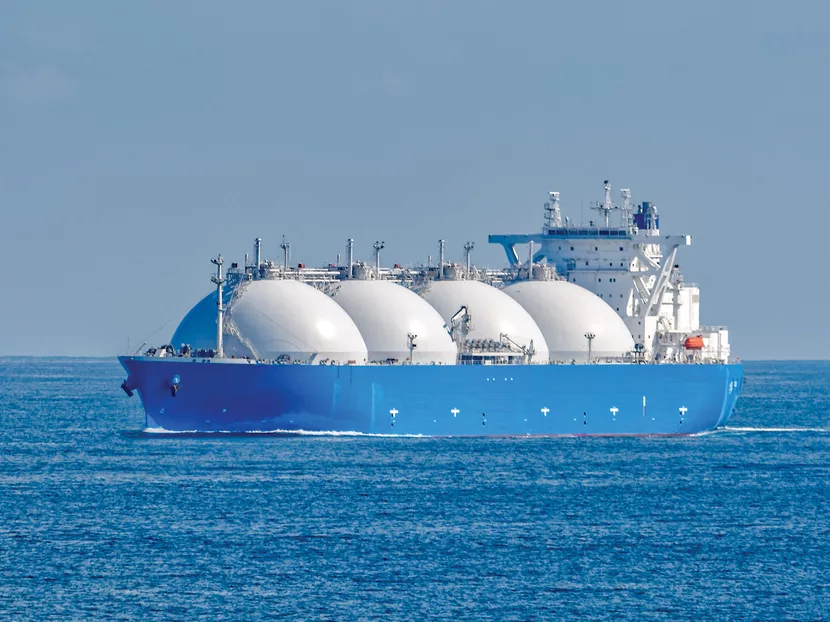While the bulk of European imports of oil, and lately natural gas, have previously depended on Russian pipelines, they are benefitting from a desire to have less dependence on Russia. The availability of the U.S.’s fast-growing natural gas exports is beginning to fill the void.
While the Russian pipelines have benefitted from this monopoly, the combination of liquid natural gas import terminals, already completed in Lithuania and Poland, is spreading to other European nations. They are seeking to divert from Russia, thereby lowering their energy costs due to the significantly lower cost of LNG.
It’s known that this alternative is now in the planning stages around the European Baltic, as well as Turkey, and should be operational shortly.
This advantage for six newly developed U.S. natural gas conversion and shipping ports will more than double America’s anticipated shipments while cutting severely into Russia’s dominant pipeline oil shipments and their developing LNG expansions.
In the first half of this year, the United States delivered 9.8 million tons of LNG globally, with 50 percent of its exports going to Asia and 4 percent to Europe.
LNG has taken an important role in the trade antagonism between the U.S. and its major trading partners. In the recent past, the European Union said it would buy more U.S. LNG as a quid-pro-quo to resolve tariffs with President Trump. On the other hand, China said it would impose a 10-percent tariff on LNG imports from America, in retaliation against Trump’s tariffs on $200 billion in Chinese goods.
Around the world, countries are moving to LNG to reduce pollution. This would utilize the glut of U.S. shale to make an already voluminous energy supply source plentiful and cheap. For Europe, seaborne LNG has become an alternative to the dominance of Russia’s piped gas.
Lithuania’s fuel-import bill fell 22 percent between late 2014 and the same period in 2018. In Poland, it fell 11 percent in the same period, even as both countries consumed more gas and oil, according to official sources.
This unexpected expansion of U.S. LNG is likely to infuriate Russia, which is having to cut prices on their lead economic sector.
Comeback for Major Magazines?
In the early days of the Internet, pre-mid-1990s, most intelligence-seeking readers relied on their favorite weekly magazines to gain an interpretation of important events impacting critical events in the United States, as well as the rest of the world.
Hardly anyone with a penchant toward such interpretation would not have become an avid reader of Life, Liberty, Look, Time or Newsweek magazines. In those days, intelligent objectivity became a must for such education, as those magazines were primarily directed toward information, rather than the propagandizing of today’s media.
Within such an atmosphere, wealthy philanthropists are attempting to create a revival of historic media brands that retain a residual value on which to rebuild.
Although the famous Henry Luce family, co-founder of Time Inc. in 1923, are no longer active, other wealthy potential press barons are emerging.
Marc Benioff and his wife, Lynne, co-founders of cloud-based software company Salesforce.com, have resuscitated Time magazine. They are among the tech billionaires ready to invest in print journalism. This follows Amazon founder Jeff Bezos, possibly the world’s first-ever future trillionaire, who bought the Washington Post in 2013. It has been matched by Laurene Powell Jobs, widow of Steve Jobs, who took a majority stake in the Atlantic Monthly last year.
Each has made it clear that their actions represent an avowed civic interest in reviving up-do-date journalism, rather than interfering in it — if you want to believe it.
The success of these initiatives is still to be determined. Time, owned by parent Time Warner, which is in the latter stages of acquisition by AT&T, has combined Fortune, People, and Sports Illustrated into a new Time Inc. Its financial results at this “time,” however, are marginal at best.
But earlier this year, the Time combo was absorbed by a deal backed by Charles and David Koch, active GOP billionaire leaders, who “frightened” the Democrats that an important anti-left investor may provide some massive competition in the future.






